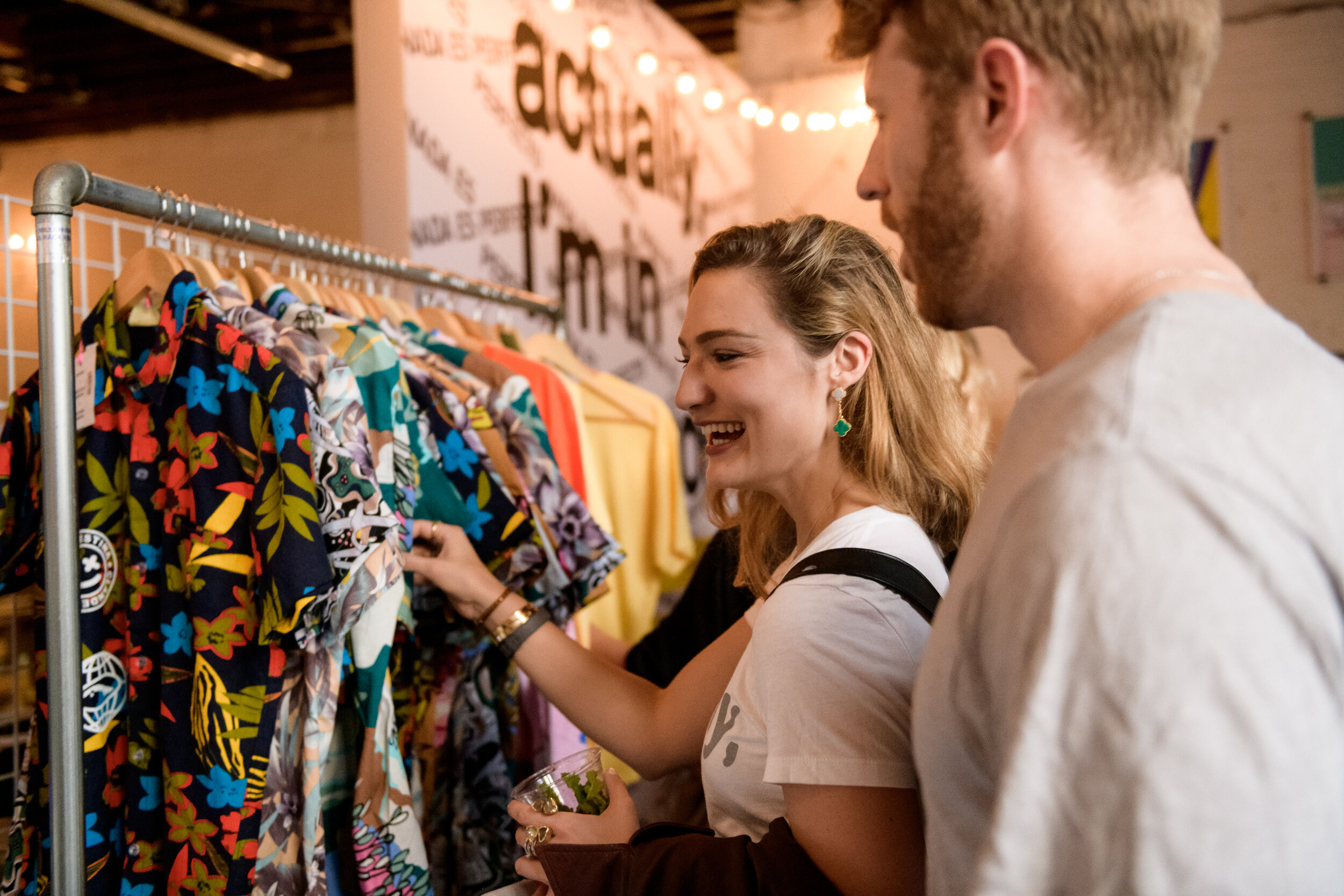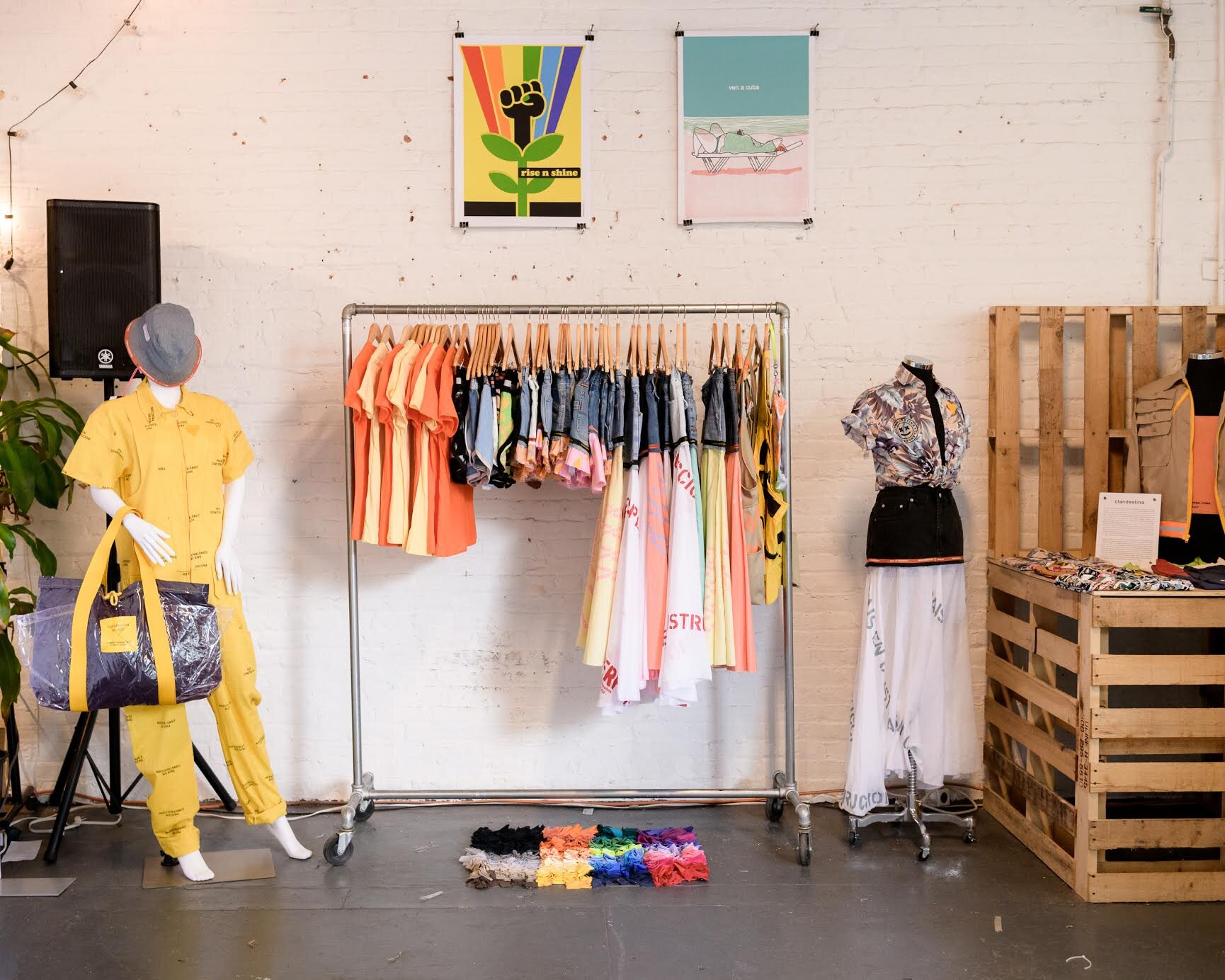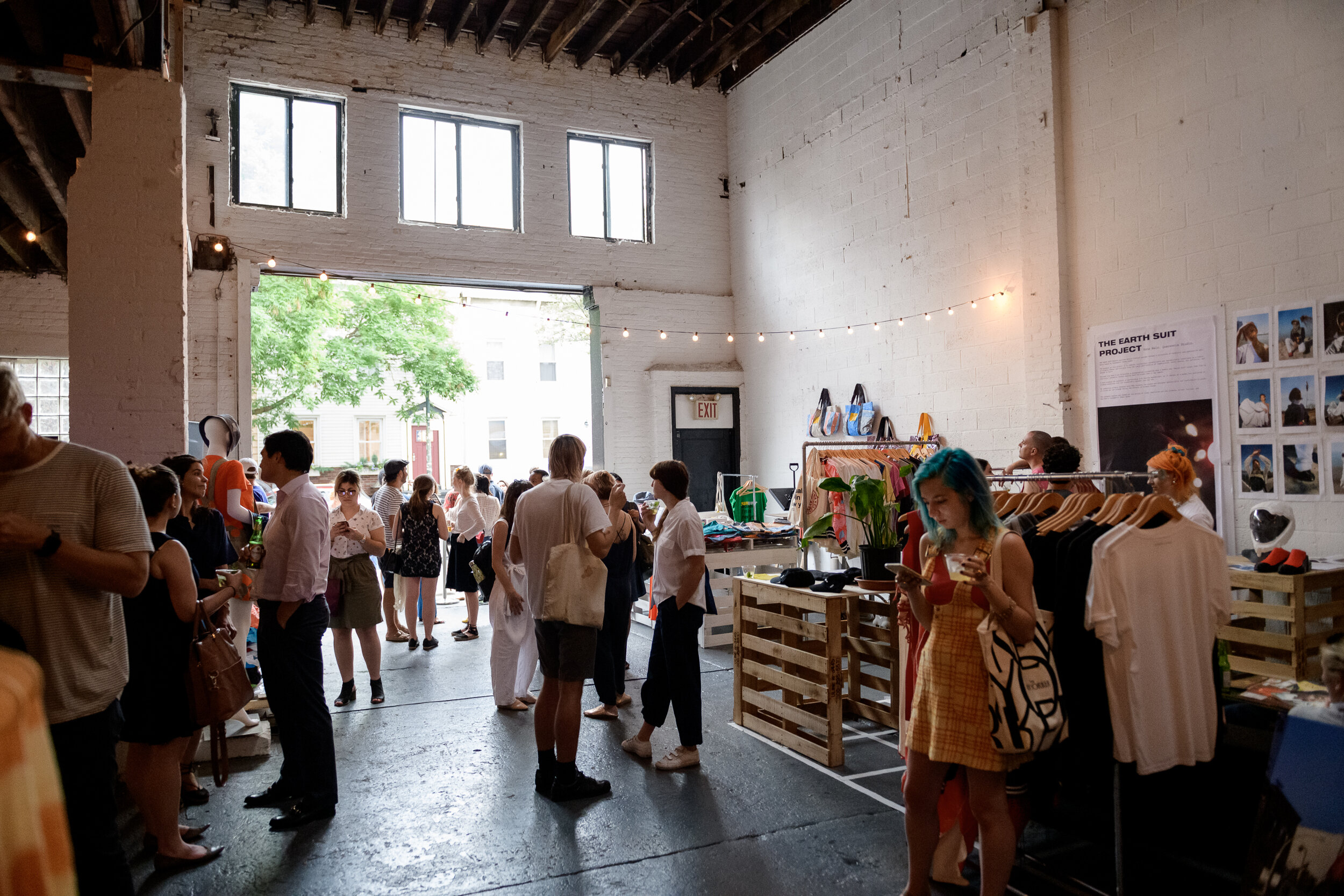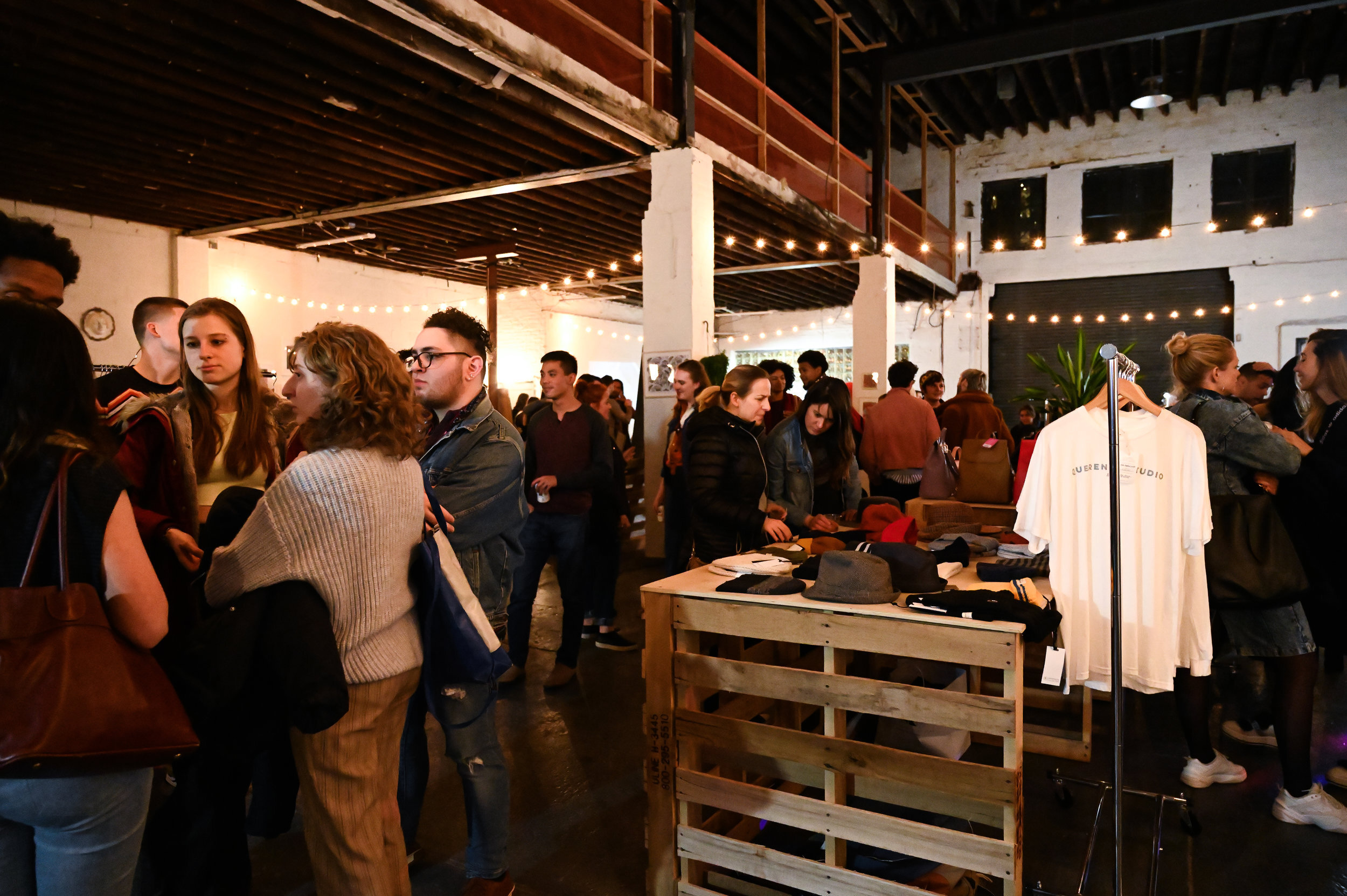WoW Woman in Sustainable Fashion | Tegan Maxey, co-founder and Chief Executive Officer of The Canvas by Querencia
Interview by Amanda McIntyre - Chavis
Tegan grew up on the island of Eleuthera in the Bahamas. Her upbringing, in an environment focused on place, and how to treat the natural world around you, inspired a curiosity and passion for taking care of people and nature alike. Due to the relative isolation, a result of a childhood spent on an island, it is with an inquisitive approach and deep attention to detail that she brings her leadership to Querencia Studio and The Canvas by Querencia. Her experience with scientific research in oceanography and sustainability, sailing and travel industries, and real estate gives her a broad spectrum of interests and knowledge.
What is the main concept behind your project / product and how did you come up with it? When did you begin this venture, and do you have other members in your team?
The Canvas by Querencia is a hub for mindfulness within the fashion industry. We curate brands from around the world that are addressing one or more of the United Nations’ Sustainable Development Goals and give them low-cost access to brick and mortar retail locations.
The Canvas began as a retail branch of Querencia Studio, the fashion label my co-founder, Devin Gilmartin, and I started in the summer of 2016. Our goal was to make basics that drew consumers’ attention to the environmental and human rights crises taking place in the fashion industry. We brought in,Kate Walz, who has been out Lead Designer since 2016, to make eye-catching, thought-provoking pieces and began to get some attention within the sustainable fashion community but quickly realized that one brand could not make enough of a difference when standing alone.
The Canvas by Querencia began in July of 2018 in what had previously been the Hunter College bookstore on the Upper East Side in Manhattan. The bookstore, like so many businesses right now, decided to go completely digital and abandoned its brick and mortar location for the world wide web leaving 4,000 square feet of retail space vacant. As a small business, we couldn’t dream of affording the asking price at the time and offered, instead, to pay a percentage of our net revenue. This transaction opened our eyes to just how many retail spaces in New York and around the world were sitting vacant.
The internet allows businesses to set up shop, sell product, and attract customers for little to no overhead and with commercial rents skyrocketing, we saw a unique opportunity to combine the collaborative necessity of the sustainable fashion industry with this new approach to retail space agreements. With this method, we signed an agreement for a 4.5 thousand square foot transformed warehouse on Bedford Avenue in Williamsburg and opened with approximately 15 brands in December 2018, a little over 10 months ago. Today, we are in the process of opening our second location in Antwerp, Belgium, and host over 75 brands from six continents (we’ve yet to come across a brand from Antarctica) with a team of 13 across both locations.




How long did it take you to be where you are now? What are your biggest achievements to date?
Devin and I only started Querencia Studio a little over three years ago, but in many respects, it feels like we have been working towards this for far longer. I grew up in The Bahamas, on one of the family islands called Eleuthera, where my parents founded a semester school for high school students. The Island School hosts 52 students for 100 days during their sophomore or junior year of high school and is intended to teach students to live consciously and sustainably and why it is important to do so. As Devin would put it, “science class is SCUBA diving and math class is calculating the solar efficiency of the campus.” Growing up in this environment gave me a hunger to make a difference, as it did for Devin when he attended the school in the fall of 2014.
When we met in New York nearly two years after Devin’s semester in Eleuthera, everything seemed to click into place that this is what we have been working towards. To that extent, when asked about achievements and success, it is difficult to answer. I am very proud of what we have achieved so far and beyond thrilled to be opening a location in Europe, but our goal is so much bigger than these achievements that celebrations are short-lived as we move on to the next step in creating a querencia, a place of mindfulness, within the fashion industry.
What was the biggest obstacle? What are the challenges of being an entrepreneur in the niche you are in? How about being a female founder / entrepreneur?
For me, the biggest obstacle has been believing that I deserve a seat at the table – not because I am a woman, necessarily, but because my background is not in fashion or business. I do not have a degree in anything, and I spent my “college years” as a deckhand on boats sailing around the world. The biggest obstacle that comes from that, as it does, I think, for many women simply by nature of being a woman in business, is having the confidence to convince others that you belong where you are. The recipe for overcoming this, I’ve found, is having unfailingly supportive partners, a plethora of internal pep-talks, and a really, really good pump-up song.
Is the #WomenInTech movement important to you and if yes, why?
The #WomenInTech movement is exceedingly important, to me, and for the world. The best thing we can offer the next generation is examples of broken barriers and shattered glass ceilings so that ten or twenty years from now young women can walk into boardrooms without an internal pep-talk and a really, really good pump-up song. The #WomenInTech movement exemplifies this aspiration.
What is the most important piece of advice you can give to all female founders and female entrepreneurs out there?
If you do not let your perceived challenges – gender, race, education, socio-economic background – hold you back from approaching the world with confidence and purpose, the rest of the world will be unable to hold you back as well.
What will be the key trends in the fashion tech industry in the next 5 years and where do you see it heading?
I think the fashion industry is heading towards increased awareness of human rights and environmental responsibility, as well as increased usability in garments. With the insurgence of technology in fashion, we are approaching a time where it is not enough for a garment to be beautiful it will also have to do something for you that goes beyond the norm of a piece of clothing.
Website: https://thecanvas.nyc
https://www.instagram.com/querenciastudio/?hl=en
https://www.instagram.com/thecanvasbyq/?hl=en
https://twitter.com/QStudioOfficial
This interview was conducted by Amanda McIntyre-Chavis, Women of Wearables Ambassador in New York, USA. She is the CEO and Founder of LegendFactory, a interactive brand management company and two new tech initiatives: Muzaik, a social media aggregator and Myndfull, a wearable tech company. She is also an active mentor, arts advocate and supporter of various social causes. Based in New York, Amanda is a member of the National Academy of Recording Arts & Sciences, Inc. (NARAS), the National Association of Black Female Executives in Music & Entertainment (NABFEME), National Association of Professional Women (NAPW), the ELLEVATE Network and Women In Music. Follow her on Twitter @AmandaMcChavis.


